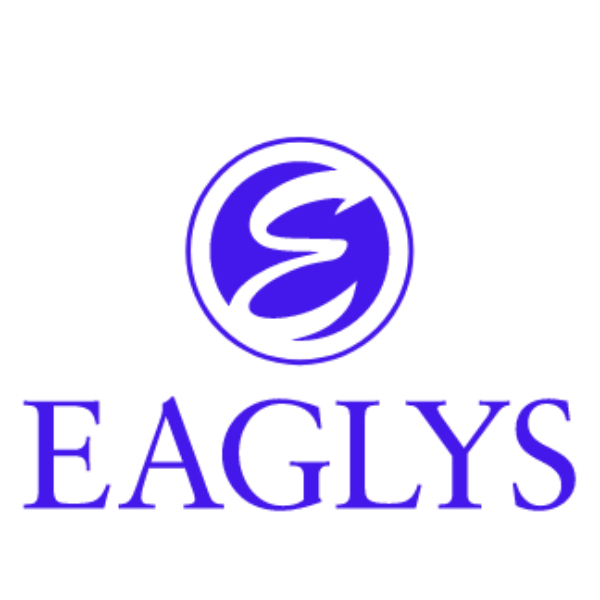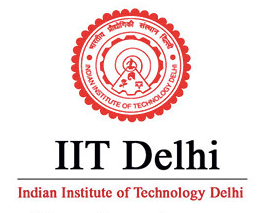
By Kenna Hughes-Castleberry posted 15 Dec 2023
Quantum News Briefs: December 15, 2023:
QC Design announces launch of fault-tolerance design automation tool Plaquette+ and first sale to QuiX Quantum

QC Design, a pioneer in quantum computing, has unveiled Plaquette+, an innovative fault-tolerance design automation software. This groundbreaking tool is designed to assist manufacturers in creating fault-tolerant quantum computers, offering solutions to challenges posed by noisy real-world hardware. According to Ish Dhand, CEO of QC Design, Plaquette+ is the first industry-grade tool of its kind, making advanced simulation tools widely accessible beyond the realm of major tech companies and well-funded startups. Prof. Martin Plenio, the co-founder, highlights Plaquette+’s capability to analyze imperfections in thousands of qubits across various platforms, which is essential for designing reliable quantum computers. Unlike its open-source counterpart, Plaquette, Plaquette+ supports comprehensive error models and advanced computing paradigms. Pim Venderbosch of QuiX Quantum, a leading European photonics quantum computing firm, endorses Plaquette+’s cost-effective and hardware-specific fault-tolerance architecture design capabilities. Plaquette+ is available through a software license from QC Design, with further information and demo requests accessible via their website. QC Design is renowned for its expertise in fault-tolerance design automation, aiding manufacturers in developing efficient and robust quantum computers.
APSO, Quantum-South’s Air Cargo Optimization Tool, Now Accessible on IATA’s Open API Hub

Quantum-South, a prominent player in quantum optimization for the air cargo industry, has announced that its Automatic Package Selection and Ordering (APSO) software is now accessible on the International Air Transportation Association’s (IATA) Open API Hub. APSO, a Software as a Service (SaaS), is designed to aid airlines, cargo handlers, and warehouse operators in maximizing package selections and ordering within Unit Load Devices (ULDs), addressing key challenges in capacity utilization in the air cargo sector. IATA’s Open API Hub is a collaborative platform for industry organizations to explore and engage with APIs from reliable industry providers, fostering innovation and market efficiency. APSO utilizes quantum-inspired optimization techniques to enhance cargo load factors, offering users free demo testing through the API on IATA’s Open API Hub. This tool provides optimal load plans considering various objectives and constraints, including priority mix, revenue, and container capacity. Rafael Sotelo, Co-founder and president of Quantum-South, highlighted APSO’s transformative impact in collaborations with industry leaders like IAG Cargo and Amerijet International, noting a capacity utilization increase of up to 30%. The availability of APSO on the IATA’s Open API Hub marks a significant step in broadening the solution’s impact and adaptability in the air cargo industry.
IBM and Top Universities to Advance Quantum Education for 40,000 Students in Japan, South Korea, and the United States

IBM has announced plans to collaborate with Keio University, The University of Tokyo, Yonsei University, Seoul National University, and The University of Chicago to enhance quantum education in Japan, Korea, and the United States. This initiative will prepare up to 40,000 students over the next decade for the burgeoning quantum workforce and foster a global quantum ecosystem. The partnership will combine IBM’s educational offerings with contributions from each university, focusing on developing a skilled quantum workforce essential for the growth of the quantum industry and economic development through quantum computing technology. The international effort will provide comprehensive educational materials across various scientific and technological disciplines, preparing the workforce for the emerging era of quantum-centric supercomputing. Each participating university brings unique strengths and commitments to this collaboration, aiming to develop a robust curriculum and engage in various educational activities. This collaboration symbolizes a significant step in quantum education, reflecting a spirit of international cooperation and technological progress.
World-Renowned Researcher Harry Buhrman Joins Quantinuum as Chief Scientist for Algorithms and Innovation
![]()
Quantinuum, a leading quantum computing company, has appointed Harry Buhrman, a distinguished complexity theorist and quantum computing scientist, as its Chief Scientist for Algorithms and Innovation. Buhrman, recognized as a global leader in the field, will lead Quantinuum’s algorithms group, enhancing the company’s work in software, AI, optimization, quantum Monte Carlo Integration (QMCI), and chemistry. He will also integrate Quantinuum’s quantum process technology with its software and application products, fostering innovation through co-design and collaboration between scientific, engineering, and customer application design teams worldwide. Buhrman’s arrival at Quantinuum is a significant addition, given his extensive background in advancing complexity theory and quantum computing since the 1990s. He previously led the quantum computing group at CWI in the Netherlands and founded QuSoft, a national quantum software and technology research center. Buhrman has also played a pivotal role in developing the EU’s quantum computing roadmap and formed industrial collaborations in quantum computing with notable partners like ABN AMRO, Bosch, KLM, and Toyota. His excitement about joining Quantinuum underscores the transition of quantum computing from an academic discipline to a field with substantial real-world applications and societal impact.
EAGLYS, Mitsui and Quantinuum Collaborate to Build a Quantum-Resistant Data Analytics (AI) Platform Using Quantum Computing Hardened Encryption Keys

EAGLYS, Inc., in collaboration with Mitsui & Co., Ltd. and Quantinuum, has enhanced the security of its DataArmor product by integrating Quantum Origin, a quantum computing-based solution for strengthening encryption keys. DataArmor, known for using homomorphic encryption to maintain the confidentiality of sensitive data and AI models while allowing analysis of encrypted data, now benefits from Quantum Origin’s unique ability to enhance encryption resilience against quantum computing threats. This integration responds to the emerging risk of quantum computing to cryptographic security, particularly the potential for quantum computers to crack current encryption methods like RSA. The need for stronger encryption is underscored by concerns over ‘Hack now, Decrypt later’ cyber-attacks, where encrypted data is stolen for future decryption once quantum technology advances. The enhanced DataArmor platform, combining fully homomorphic encryption and quantum-derived entropy for key generation, provides a quantum-resistant solution for research institutes and businesses collaborating in fields like chemical materials, drug discovery, financial analysis, and retail trends. This collaboration between EAGLYS, Mitsui, and Quantinuum represents a significant step in safeguarding data in a potentially quantum-dominated future, offering a more secure environment for data sharing and AI applications across various industries.
Moody’s Analytics, Multiverse Computing introduce quantum tech for financial services

Moody’s Analytics has launched QFStudio, a quantum computing solution tailored for the finance industry, in partnership with Multiverse Computing. Designed as a software-as-a-service (SaaS) offering, QFStudio enables finance professionals to benchmark and compare the performance of classical algorithms against their quantum equivalents. This service aims to address the computationally intensive challenges financial institutions face, providing insights into the potential advantages of quantum computing. Recognizing the difficulties in integrating quantum algorithms into existing processes due to high computational demands, Moody’s solution utilizes APIs, SDKs, and a web view to compare quantum and classical solutions regarding speed, accuracy, risks, and cost. The platform allows users to identify potential bottlenecks and assess scalability, backed by access to various quantum hardware providers and advanced portfolio optimizers by Multiverse Computing. Victor Gaspar from Multiverse disclosed that QFStudio currently runs algorithms on AWS GPUs, with plans to expand to gate-based processors. This initiative by Moody’s Analytics aims to bridge the gap for finance industry pioneers in quantum computing, which is projected to grow significantly in value by 2030. The launch positions the finance sector among the potential early beneficiaries of quantum computing advancements, offering a variety of use cases involving large-scale data and complex computations.
IIT Delhi Launches New Certification for Quantum Computing & Machine Learning

The Indian Institute of Technology Delhi (IIT Delhi) has launched the fourth batch of its Certification in Quantum Computing & Machine Learning, a program designed to equip professionals with the skills needed for the emerging fields of quantum computing and machine learning. The five-month online course blends theoretical foundations with practical experience, covering topics like Quantum Mechanics, Quantum Algorithms, Classical Machine Learning, Quantum Fourier Transform, and Quantum Machine Learning. Dr. Abhishek Dixit from IIT Delhi highlighted the program’s role in addressing the increasing demand for skilled professionals in quantum technologies and contributing to India’s growth in this domain. This initiative aligns with the Indian government’s focus on quantum technologies, as reflected in the National Quantum Mission, and anticipates the quantum computing market’s significant growth, projected to reach USD 50 billion between 2023-35. The course, delivered through an Interactive Learning platform in Direct-to-Device mode, includes insights from faculty and industry experts, a one-day immersion at IIT Delhi, and a focus on quantum optimization techniques and algorithm implementation. Graduates of this program can pursue careers in various cutting-edge roles such as Quantum Software Developer, Quantum Machine Learning Engineer, Quantum Data Scientist, and Quantum Consultant.
Kenna Hughes-Castleberry is the Managing Editor at Inside Quantum Technology and the Science Communicator at JILA (a partnership between the University of Colorado Boulder and NIST). Her writing beats include deep tech, quantum computing, and AI. Her work has been featured in Scientific American, Discover Magazine, New Scientist, Ars Technica, and more.
- SEO Powered Content & PR Distribution. Get Amplified Today.
- PlatoData.Network Vertical Generative Ai. Empower Yourself. Access Here.
- PlatoAiStream. Web3 Intelligence. Knowledge Amplified. Access Here.
- PlatoESG. Carbon, CleanTech, Energy, Environment, Solar, Waste Management. Access Here.
- PlatoHealth. Biotech and Clinical Trials Intelligence. Access Here.
- Source: https://www.insidequantumtechnology.com/news-archive/quantum-news-briefs-december-15-2023qc-design-announces-launch-of-fault-tolerance-design-automation-tool-plaquette-and-first-sale-to-quix-quantum-apso-quantum-souths-air-cargo-optimization-too/



